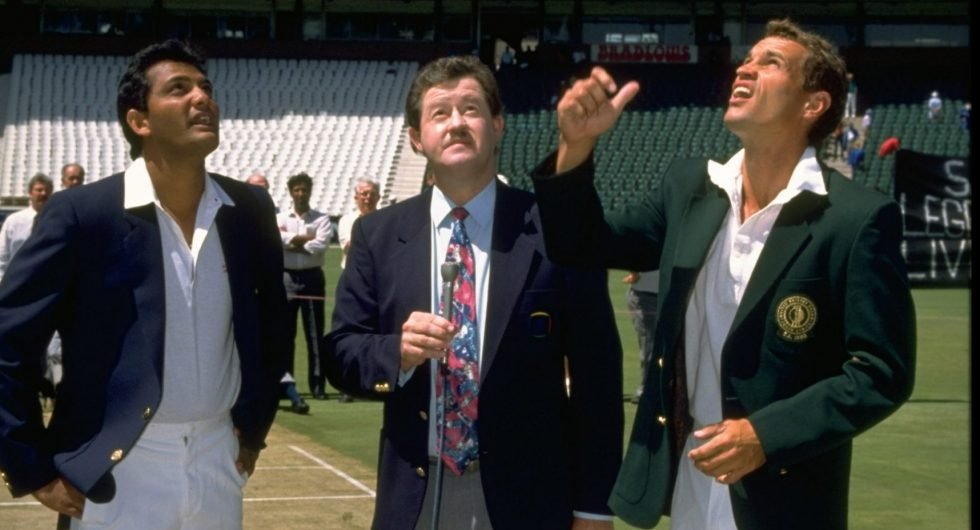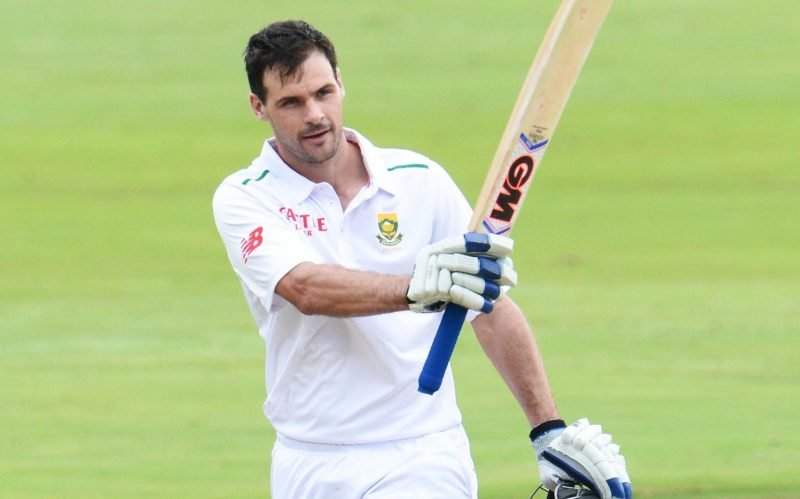My Golden Summer, 1992/93: Why South Africa’s readmission didn’t please everyone

For the South African family of Firdose Moonda, her homeland’s readmission into the international sporting fold following decades of apartheid was far from a cause for celebration.
Published in 2017
“Let’s hope they get a hiding here.”
“They don’t know what’s coming. They think we can’t play cricket. These guys will show them.”
It was the summer of 1992/93. I was five years old, yet old enough to register the comments being passed around my parents’ lounge. Some came from my father, a human-rights campaigner who was involved with the African National Congress. Some came from my two uncles, not as active but just as angry with the injustices of our country’s Apartheid policies. All three were cricketers in their day; all played for teams under the umbrella of the South African Cricket Board – the non-white body of administration – and, when the national team took on India in the first home tour in 22 years, all of them wanted to see the national team lose.
Though South Africa was not yet a democracy, it had already been allowed back into international sport. The unity between the white and non-white boards was celebrated globally but seen as nothing more than short-change in our home. We understood it as nothing more than the more powerful white administration swallowing its non-white counterpart and spitting out its players instead of including them in the new structures. The South African cricket team that travelled to India the year before was a case in point: it was all-white.
For my father, uncles and many thousands more of their generation, the national team was elitist and exclusionary, a farce that they would not be part of. Instead, they supported the opposition, an easy choice in this case because our family traces its lineage to Ahmedabad in India. We already had a connection to Mohammad Azharuddin’s men, and more so to Azharuddin himself. Our family is Muslim and the captain was the only Muslim in the side. In later tours I would discover a deeper connection to Pakistan but for that summer, I remember we were desperate to see India humiliate South Africa.
***
I don’t have many memories of the actual cricket. I knew that there was a young player called Sachin Tendulkar that everyone was interested in, that there was a spinner called Anil Kumble, who my uncles were sure would expose South Africa’s ineptitude against the turning ball, and that of all the South Africans we disliked, Omar Henry was the one we hated most. He had crossed over and gone to play for the white side in the bad old days. He was what we considered a sellout.
The only thing I remember vividly was that when Jimmy Cook was dismissed for a first ball duck, it was as though freedom itself had been obtained. The lounge erupted in noise, there was high-fiving all around and I spontaneously began singing Nkosi Sikele i’Africa. It was not the South African national anthem then and my dad had religiously taught me the full version. At the end, I used to yell ‘Viva Mandela’ three times, which became ‘Viva Kapil Dev, Viva Tendulkar, Viva India’ that day.
A decade-and-a-half later, I was working as a part-time cricket scorer while studying and had become a regular at provincial and franchise matches at the Wanderers at Johannesburg. In the Gauteng team was a batsman called Stephen Cook. He was polite and well-spoken and we became friends.
Almost another decade after that, I was among those who wrote strongly that Cook should be included in the South African Test team after seven summers of serious run-scoring for the Lions. When Cook was selected, I felt privately triumphant, more so when he thanked me for being one of the people who had, in his words, “supported his case”. When he scored a century on debut, I felt vindicated. When he scored two more, after an ugly lean patch in Australia, I felt relieved. When he was dropped for the final Test in New Zealand in 2017, I felt wronged.
The journalist in me didn’t want to feel any of those things, even though I can see it as something of deeper significance. Twenty-five years ago, my father and uncles had been so wounded by a system that had denied them that they wished for nothing more than for Jimmy Cook to fail. Twenty-five years later, the system had changed to the point where I could wish for his son to succeed.

Stephen Cook celebrates his debut hundred at Centurion, 2016
***
South Africa’s transformation is far from complete, and has only recently attained the emphasis my father and his ilk wanted to see put on it. The 2015/16 summer was the first time the national team had been required to have more than half the playing XI “of colour”. Over the course of a season, CSA demanded at least six players of colour, including two black Africans on average in the team, and they exceeded that. Among the players who made regular appearances were Kagiso Rabada and Temba Bavuma – players no one could argue did not deserve their place in their side.
Also among them was Keshav Maharaj, for whom the India ‘Friendship Tour’ also had lasting effects. Keshav was even younger than I was then, just two, and his father, Athmanand, like mine, used to play board cricket. Athmanand played for Natal and Keshav grew up among a close-knit community of people of Indian origin in Durban, the first stop of the tour.
The community there made the Indian team feel like they were playing at home, and not just in the stadium. After hours, they opened their homes to the tourists, complete with sumptuously cooked curries and company. At one of those gatherings, Keshav met Kiran More, who looked at his hands and predicted he would become a wicketkeeper. He wasn’t too far off – he turned out to be a spinner. Today, Keshav is living his father’s dream.
I interviewed Athmanand when Keshav was first selected to play for South Africa, ahead of the tour to Australia in November 2016. After we went through the usual stuff about memories of Keshav as a child and stories of how he rose through the ranks, I asked Athmanand how he’d felt about the South African team in the early years of readmission (on a suspicion he shared the views of my family) and whether anything had changed now. His answer touched me.
“Back then we were hurt, because after all the years when we were treated so badly, we also felt as though we were deliberately sidelined afterwards. So, yes, I supported the Indian team then. But now, we can see things are starting to change and even though my roots are Indian and I will always want to see them to do well, my son has found a place playing for South Africa and I support him and his team first.”
My family’s experience is different – they were more aggressively political and the closest they come to international sport is through me, a reporter – so I can’t expect them to feel the same way. Not yet.
They still say things like, “If Hashim Amla does well and South Africa lose, that would be perfect”.
Soon that could become: “If Hashim Amla and Keshav Maharaj and Kagiso Rabada and Temba Bavuma and JP Duminy and Andile Phehlukwayo and Tabraiz Shamsi and Lungi Ngidi do well and South Africa still lose…”
Unlikely, isn’t it? And maybe that’s when things will really change for people of my parents’ generation. Though they remain wronged, their children and grandchildren and great grandchildren for generations to come could experience right. That’s the South Africa we all dream of.
Published in 2017

